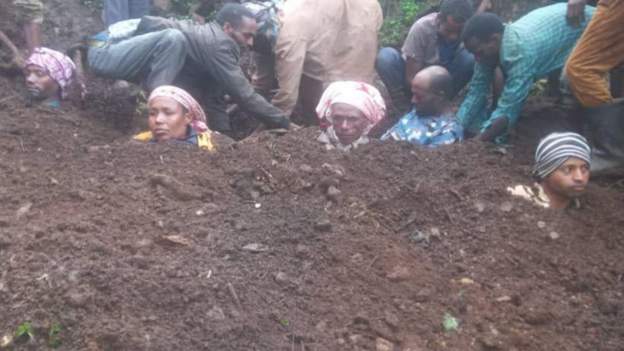In eastern Ethiopia, twelve individuals who miraculously survived a lightning strike found themselves buried up to their necks for nearly two hours following local customs.
The incident unfolded on Sunday in Melka Bello, a town located approximately 450km (280 miles) away from the capital, Addis Ababa.
“It wasn’t a heavy downpour. The lightning hit a sheep near the entrance while we were indoors. We all collapsed, many of us trembling,” recounted survivor Nesro Abdi to the BBC.
Hearing cries for help, nearby residents swiftly came to their aid.
“They brought milk and poured it over us. They dug into the earth and buried us up to our necks,” Mr. Nesro shared.
In the central region of Oromia in Ethiopia, there exists a prevalent belief that if someone survives a lightning strike, burying them in soil and administering milk either to drink or pour over them will facilitate their recovery.
Lightning is perceived as a divine act, and when it strikes, people often engage in celebrations to avoid displeasing the Almighty.
Reflecting on the experience, Mr. Nesro remarked, “Initially, I couldn’t move my legs, so people had to lift me and place me in the soil. However, upon emerging, everyone felt remarkably better. I’m able to move freely now.”
Haftu Birhane, an environmental physics researcher at Haramaya University, cautions against these traditional practices, noting their lack of scientific validation.
“What science recommends is to promptly transport survivors to the nearest healthcare facilities,” he emphasized.
